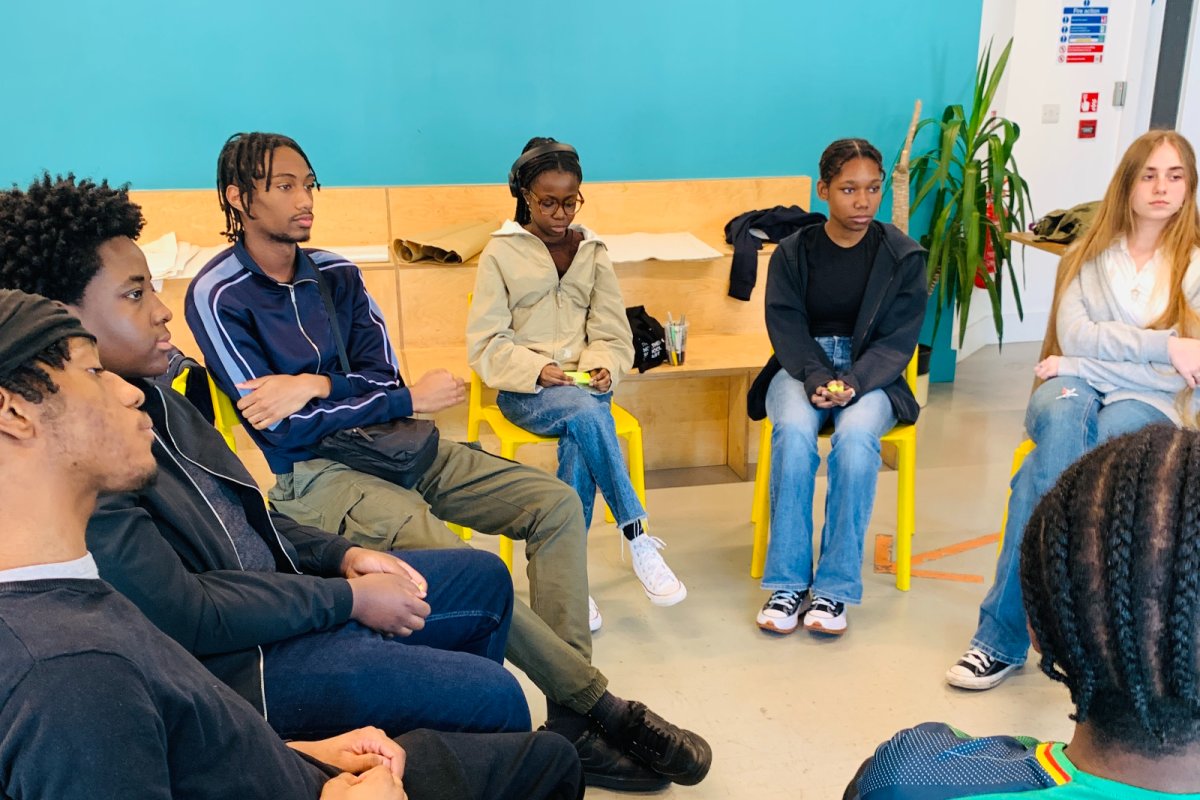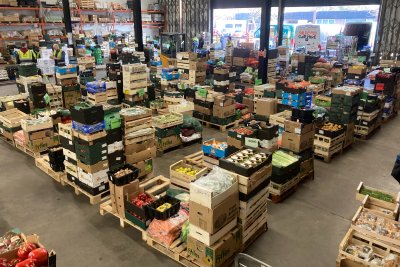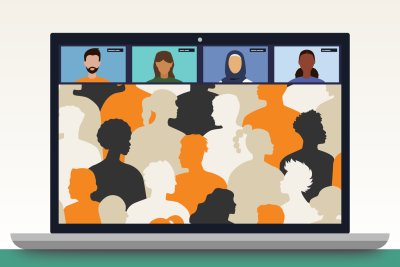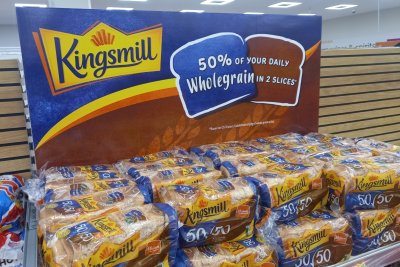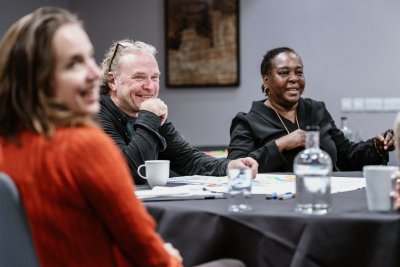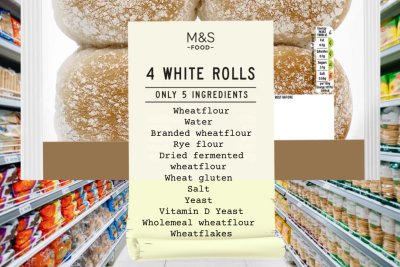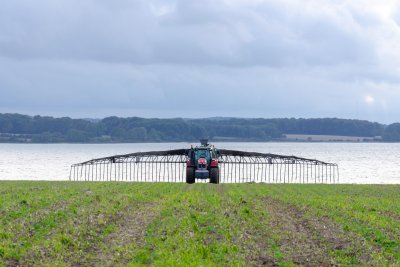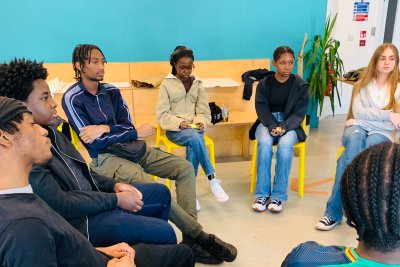 Young people's focus group. Copyright: Polly Waterworth | We Rise
Young people's focus group. Copyright: Polly Waterworth | We Rise
Sweetening the deal for children’s health: Do young people back an extension of the soft drinks levy?
Happy 7th birthday to the Soft Drinks Industry Levy! It’s been an incredible success for children's health, but how can we build on this? And what do young people themselves think about extending the levy?
Since its introduction in 2018, the Soft Drinks Industry Levy (SDIL) has slashed sugar levels in drinks while raising money for children’s health initiatives. However, the British public is calling for more action. Many believe food companies should be doing more to make their products healthier, particularly by reducing sky-high levels of sugar and salt. This is why we at Recipe for Change are calling for the levy to be extended to include other unhealthy food products. But what do young people think about this idea?
To find out, we collaborated with We Rise, a youth organisation skilled in engaging young people, to explore their views. Working with 14–17-year-olds, they designed and ran focus groups to investigate how this age group feels about healthy eating, the SDIL, and the potential for a similar levy on unhealthy foods. The findings provide valuable insights into young people’s attitudes towards food, health, and taxation.
Polly Waterworth, We Rise Operations Director, shares their findings:
Our work experience team who designed and ran the research project could be forgiven for not remembering the details of the drinks levy as they were only in primary school when it was introduced, but it has certainly had a positive impact on their taste in soft drinks and health.
The ten young people we recruited designed and delivered the focus groups, engaging 27 participants aged between 14 and 17 over five sessions. With guidance from an IPSOS volunteer, they analysed the discussions and compiled a report on their findings:
Healthy eating
There was a general consensus that eating healthily isn’t easy, but many young people acknowledged that it’s often a matter of choice. As one participant put it, “If you are willing, you can.”
Most young people rely on their parents to buy and prepare food, but they recognise that cost often limits healthy choices. When left to choose their own food, young people tend to prioritise taste, cost, convenience, and familiarity.
Healthy food is largely associated with fruit, vegetables, and a balanced diet, but many admitted that healthy foods don’t always taste as good as unhealthy alternatives. Unhealthy food, on the other hand, is seen as fast, cheap, and loaded with salt, sugar, and fat. Participants were also aware that these foods are marketed heavily to young people.
As one young person noted,
“Big companies can afford to promote their products more effectively through ads, trends, and packaging that appeals to young people.”
Participants also expressed frustration with food labels, saying, “The scientific words they use are hard to understand… glucose is just sugar, so why not say so?”
The Soft Drinks Levy
The team explained the soft drinks levy to the participants: Companies can either keep the sugar levels in their drinks the same and pay more tax, or reduce sugar content to pay less tax, which would make their products healthier.
Many young people shared that they don’t drink fizzy drinks regularly but appreciated the impact of the levy. “I was brought up to think they were unhealthy,” one participant said. Others agreed that even if companies don’t reduce sugar, the revenue raised is being used for education and health programmes.
Attitudes towards the proposed unhealthy food levy
There was strong support for expanding the levy to other unhealthy foods, particularly sweets.
One participant said,
“Sweets should definitely be included; if drinks are being taxed, I’m amazed that sweets aren’t already being taxed.”
However, participants didn’t want the levy to impact the taste or cost of food too much. Many wanted ‘treat’ places like ‘Creams’ or family restaurants like ‘Nando’s’ to be exempt, as they’re seen as occasional indulgences. Participants didn’t want these to become unaffordable for families who generally eat healthily.
Views on the benefits of the levy
Young people had mixed opinions on whether the levy should focus more on making food healthier or raising money for health programmes. While they saw benefits to both options, there was strong support for using the funds to promote healthier eating. Many emphasised the importance of helping those living in poverty access healthier food, noting the lack of affordable nutritious options in some communities.
How should the money be spent?
When asked how the revenue from a potential unhealthy food levy should be spent, there was consensus that it should be reinvested in the community. Participants felt primary schools already offer good healthy eating education, but secondary schools are lacking. They wanted better education on topics like:
- The long-term effects of unhealthy eating
- The ingredients in the food they consume
- Practical skills like cooking and growing food
Young people expressed a keen interest in learning more about how to eat healthily and improve their food choices, making this a clear area of focus for any future levy revenue.
So, what next?
The findings from We Rise’s research reveal that young people are highly aware of the impact of unhealthy eating and the role that taxation could play in promoting better food options. They support the idea of expanding the Soft Drinks Industry Levy to cover more unhealthy food products, but they also want to ensure that such a levy doesn’t disproportionately affect the taste or affordability of food.
By using the money raised to improve food education and support healthier choices, there is a real opportunity to make a difference in the lives of young people and families across the UK. It’s clear that young people are ready for action, and the government should listen to their voices as we push for a healthier, more sustainable future.
Children's Food Campaign: Campaigning for policy changes so that all children can easily eat sustainable and healthy food.
Sustain
The Green House
244-254 Cambridge Heath Road
London E2 9DA
020 3559 6777
sustain@sustainweb.org
Sustain advocates food and agriculture policies and practices that enhance the health and welfare of people and animals, improve the working and living environment, promote equity and enrich society and culture.
© Sustain 2025
Registered charity (no. 1018643)
Data privacy & cookies
Icons by Icons8
